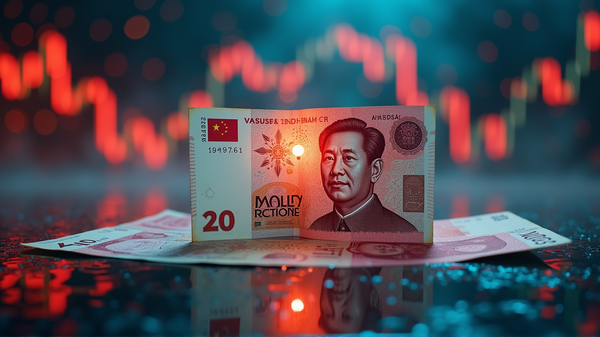The End of an Era: The Demise of China's Real Estate Giant Evergrande
In a landmark ruling that sent shockwaves through the global financial markets, a Hong Kong court has ordered the liquidation of China Evergrande Group, a decision that plunged the company's shares an additional 21% to an all-time low. This momentous event marks the end of the line for what was once China's largest property developer, unable to navigate the crushing burden of a $300 billion debt.
The tale of Evergrande's downfall is a dramatic saga of ambition, overreach, and the harsh realities of financial mismanagement. Founded over two decades ago, Evergrande rapidly grew into one of China's most prolific property developers, symbolizing the nation's astonishing economic rise. However, this rapid expansion came at a steep cost, as the company accumulated a staggering amount of debt.
The first signs of trouble for Evergrande emerged in 2021, signaling the beginning of a harrowing journey through financial turmoil. Over the next two years, the company desperately sought ways to generate funds and stave off collapse. Efforts to restructure its massive debt were met with roadblocks, including regulatory bans that prevented the issuance of new bonds through its subsidiaries. Attempts to convert this debt into equity of its subsidiary companies also floundered, primarily due to insufficient compensation being offered to debt holders.
Evergrande's struggle is reflective of larger issues within China's real estate sector, which has been experiencing a significant downturn. The property market, once a major driver of the Chinese economy, has been grappling with oversupply, diminishing sales, and a general cooling of investor sentiment. This situation is compounded by the government's crackdown on excessive borrowing in the real estate sector, part of a broader effort to reduce financial risks in the economy.
The consequences of Evergrande's crisis were far-reaching. In March 2022, trading of the company's shares had to be halted due to severe sell-offs, illustrating the market's loss of confidence in the once-mighty developer. When trading resumed in August 2023, the company's stock had already plummeted, rendering the shares nearly worthless.
The collapse of Evergrande is not just a corporate failure; it is indicative of the challenges facing China's real estate sector and the broader economy. The company's inability to manage its debts reflects systemic issues, including aggressive expansion strategies, over-leveraging, and an over-reliance on debt-financed growth. These problems are not unique to Evergrande but are symptomatic of a wider trend within the Chinese property market.
Furthermore, the fall of Evergrande has global implications. As one of the largest property developers in the world, its demise has raised concerns about potential ripple effects throughout the global financial system. Investors and financial institutions worldwide, who have exposure to Evergrande through various financial instruments, are bracing for potential losses.
The liquidation of Evergrande also raises questions about the future of China's real estate sector. The government's interventions in the market, including tightening credit conditions and introducing new regulations, are part of an effort to create a more sustainable and stable property market. However, these measures have also contributed to the financial difficulties faced by companies like Evergrande.
In conclusion, the story of Evergrande's downfall is a cautionary tale of what happens when ambition outpaces financial prudence. It serves as a stark reminder of the dangers of excessive debt and the importance of sustainable growth strategies. As the world watches Evergrande's liquidation process unfold, it will undoubtedly continue to be a focal point for discussions on China's economic policies, the health of its real estate sector, and the stability of the global financial system.




